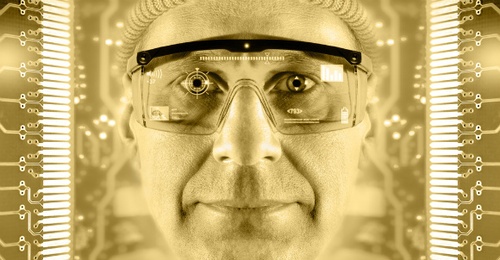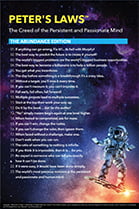
In this week's Abundance Insider: 3D printed blood vessels, smart Band-Aids and cloning humans.
Cheers,
Peter, Marissa, Cody, Maxx, Kelley and Greg
P.S. Send any tips to data@diamandis.com, and send your friends and family to this link to subscribe to Abundance Insider.
Dare We Edit the Human Race? Star Geneticists Wrestle with Their Power
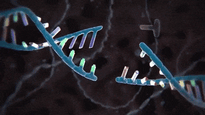
What it is: A report from the recent International Summit on Human Gene Editing, where participants debated on whether to legalize or ban genome altering. This controversial idea has become a possibility due to the CRISPR-cas9 gene editing system.
Why it's important: Another example of science fiction turning into science fact. While gene editing could help eradicate diseases for good, it also comes with unavoidable ethical and moral issues.
Spotted by Peter Diamandis
New Anti-Aging Drug Could Enable 120-Year Lifespan

What it is: Researchers have discovered that Metformin, a ubiquitous diabetes pill that costs just cents to make, could potentially extend our lifespan to 120 years. As Fox reports, the drug "helps to increase oxygen flow on the cellular level, thereby slowing the necessary cell divisions that keep our bodies... functioning correctly but ultimately lead to aging."
Why it's important: With multiple concurrent efforts to prolong the healthy human lifespan (Human Longevity Inc., Calico, medical research), it's only a matter of time before 100 is truly the new 60.
Spotted by Peter Diamandis
The Sticky, Stretchy and Smart Band-Aid of the Future
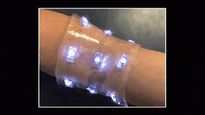
What it is: MIT researchers have developed a smart hydrogel that could one day be a standard bandage. The sticky, stretchy dressing has drug delivery channels, LED lights, and temperature sensors that can intelligently release medicine in response to body temperature or even alert the wearer to a low medicine supply.
Why it's important: Stretchable hydrogel electronics enable comfortable, easy-to-use health care monitoring and drug delivery. Future iterations of this wound dressing could be used to treat burns or deliver tiny electronics inside the body.
Spotted by Peter Diamandis
Adidas Converts Ocean Plastic into 3D-Printed Shoes

What it is: Adidas and Parley for the Oceans have paired up on a 3D printed shoe made of ocean plastic. The Ocean Plastic shoe has an ocean plastic upper and a 3D printed midsole made of gill net and recycled polyster.
Why it's important: These shoes represent part of Adidas' effort to infuse exponential technology and sustainability into their core products.
Spotted by Marissa Brassfield
Cloning Humans? Factory Scientist Says It's Possible
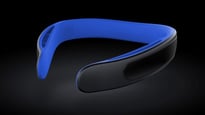
What it is: Could we clone humans one day? According to the scientists behind Boyalife Group, the technology is already here. Boyalife and its partners are currently building what will be the world's biggest cloning factory in Tianjin, China, and will be ready to go into production in under a year. Their primary focus is on cloning cows so that they can produce more Kobe-like beef for China's middle class without the need for cattle farms.
Why it's important: Here's one path to food abundance. What happens when we can produce premium proteins (beef, pork, poultry) that taste exactly like their conventionally raised counterparts, but don't require farmland, feed or slaughterhouses?
Spotted by Peter Diamandis
Software Eats Software Development

What it is: Gigster has just raised a $10 million Series A round led by Andreessen Horowitz. The company hopes to change how software development is done, aided by artificial intelligence. An Artificial Intelligence engine converts a client's product proposal into a development plan, while Gigster's remote developers insert code blocks to build the app quickly and inexpensively.
Why it's important: Gigster is even more evidence that software is disrupting software development. It's also a promising interface for entrepreneurs: all they need to do is articulate their app idea, and Gigster turns around a finished app -- no coding or managing freelancers required.
Spotted by Cody Rapp
How to Make Diamond Objects with a Laser at Room Temperature
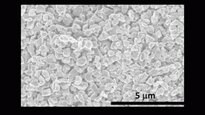
What it is: North Carolina State University researchers have discovered Q-carbon -- a new phase of solid carbon distinct from graphite and diamond -- and are using it to create diamond-related structures at ambient atmospheric pressure in air and at room temperature. KurzweilAI reports that Q-carbon is "ferromagnetic, harder than a diamond, glows when exposed to even low levels of energy, and can be used to create a variety of single-crystal diamond objects."
Why it's important: Q-carbon enables diamond microneedles or nanoneedles for a variety of purposes, from drug delivery to high-temperature switches. And its production solely takes place in the lab: According to the researchers, the only place Q-carbon might possibly appear in the natural world is in the core of some planets.
Spotted by Marissa Brassfield
We Can Now 3D Print Live Blood Vessels
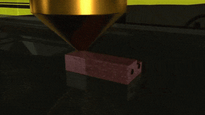
What it is: Lawrence Livermore National Laboratory researchers have just used "bio-ink" to 3D print live blood vessels. Research engineer Monica Moya says the process will "change the way we do biology... This technology can take biology from the traditional petri dish to a 3D physiologically relevant tissue patch with functional vasculature."
Why it's important: Artificial blood vessels could revolutionize treatment for patients with malfunctioning blood vessels, reducing or eliminating the need for tissue donors.
Spotted by Marissa Brassfield
Amazon Wants to Fill Your Living Room with Sensors and Cameras to Bring You Augmented Reality
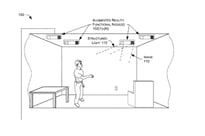
What it is: Amazon recently filed two patents that indicate how they might leverage augmented reality in their ecommerce experience. One patent is for object tracking in a three-dimensional environment, while the other is a reflector-based depth mapping of a scene, as Bloomberg Business reports.
Why it's important: Amazon's patents show how the company is continually looking to disrupt itself. These ones in particular enable a magical experience: Imagine requesting a book, seeing that book pop open on a nearby surface, and then be able to read it (or trigger a voiceover) using voice or motion commands.
Spotted by Marissa Brassfield
MIT Boosts 3D Imaging Resolution 1,000-Fold Which Will Help 3D Printing and Driverless Cars
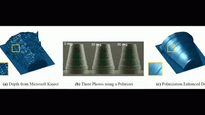
What it is: MIT researchers been able to increase the resolution of conventional 3D imaging devices 1,000x by exploiting the polarization of light.
Why it's important: Better 3D imaging resolution will accelerate autonomous car development. We might also see 3D cameras in future smartphones, enabling us to snap a photo of an object and send it to a 3D printer for replication.
Spotted by Marissa Brassfield
Las Vegas Uses Acoustic Monitoring to Maintain Pipe Integrity

What it is: The Nevada Center for Excellence has installed a smart leak detection system -- the first of its kind -- on its pipeline that pinpoints leaks before they're detectable by current methods. Acoustic networked sensors and proprietary processing algorithms "hear" faint noises emitted by leaks, enabling water utility operators to take action before a pipeline leak becomes a major problem.
Why it's important: This IoT-enabled system enables the Las Vegas water district to keep water loss as low as possible -- 5% to 6%, compared to about 15% in typical municipal water distribution systems. Deployed at scale, metropolitan infrastructure would become significantly more efficient with water use -- and without any interruptions to current water service.
Spotted by Clyde Dennis
Want more conversations like this?
At Abundance 360, Peter's 250-person executive mastermind, we teach the metatrends, implications and unfair advantages for entrepreneurs enabled by breakthroughs like those featured above. The program is highly selective and we're almost full, but we're still looking for a few final CEOs and entrepreneurs who want to change the world. Apply now for Abundance360 Summit if you'd like to develop an Abundance Mindset.
Know someone who would benefit from getting Abundance Insider? Send them to this link to sign up.



